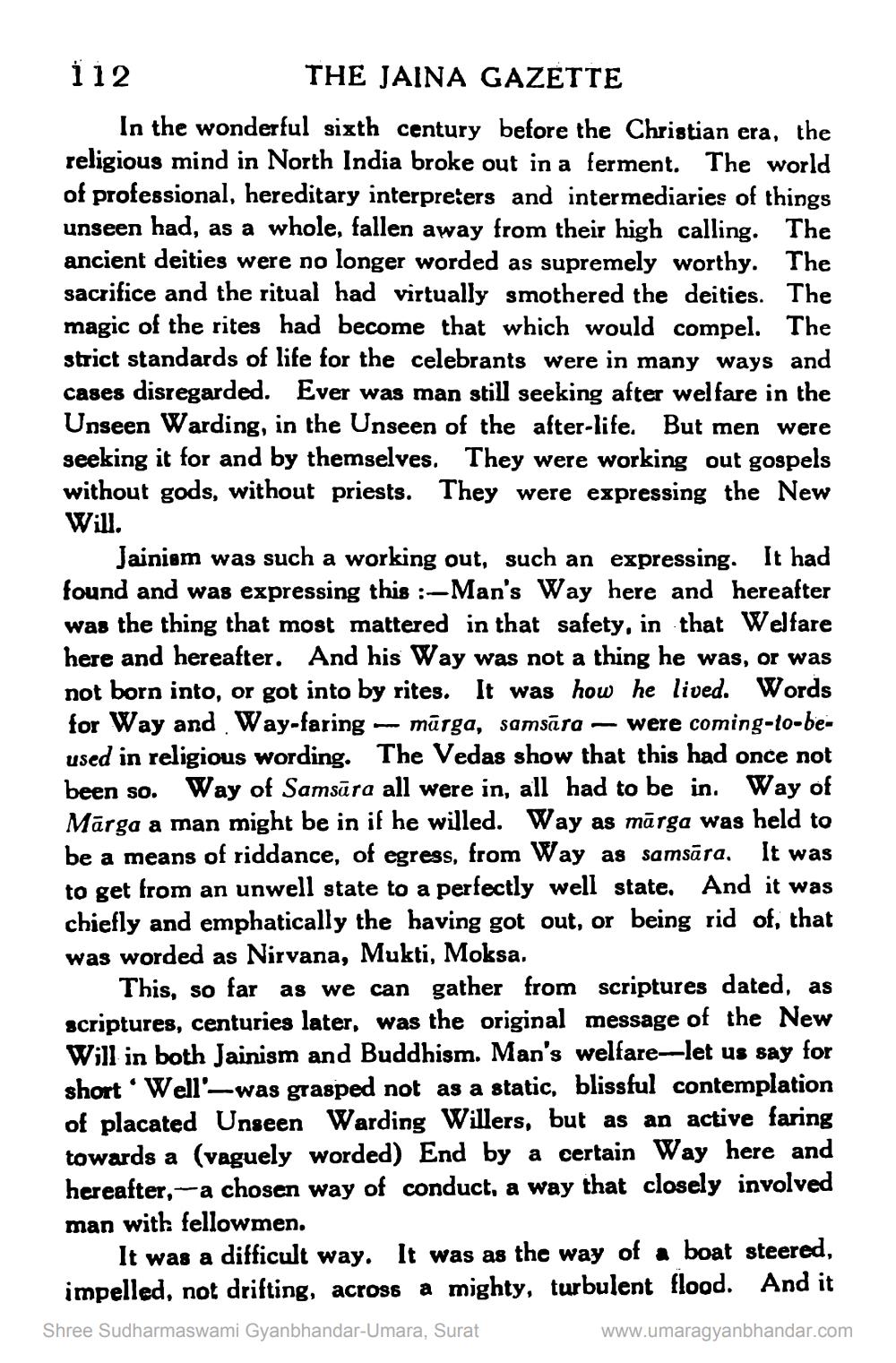________________
í12
THE JAINA GAZETTE In the wonderful sixth century before the Christian era, the religious mind in North India broke out in a ferment. The world of professional, hereditary interpreters and intermediaries of things unseen had, as a whole, fallen away from their high calling. The ancient deities were no longer worded as supremely worthy. The sacrifice and the ritual had virtually smothered the deities. The magic of the rites had become that which would compel. The strict standards of life for the celebrants were in many ways and cases disregarded. Ever was man still seeking after welfare in the Unseen Warding, in the Unseen of the after-life. But men were seeking it for and by themselves. They were working out gospels without gods, without priests. They were expressing the New Will.
Jainism was such a working out, such an expressing. It had found and was expressing this :-Man's Way here and hereafter was the thing that most mattered in that safety, in that Welfare here and hereafter. And his Way was not a thing he was, or was not born into, or got into by rites. It was how he lived. Words for Way and Way-faring -- mūrga, samsāra — were coming-lo-beused in religious wording. The Vedas show that this had once not been so. Way of Samsāra all were in, all had to be in. Way of Mārga a man might be in if he willed. Way as mārga was held to be a means of riddance, of egress, from Way as samsāra. It was to get from an unwell state to a perfectly well state. And it was chiefly and emphatically the having got out, or being rid of, that was worded as Nirvana, Mukti, Moksa.
This, so far as we can gather from scriptures dated, as scriptures, centuries later, was the original message of the New Will in both Jainism and Buddhism. Man's welfare--let us say for short Well'—was grasped not as a static, blissful contemplation of placated Unseen Warding Willers, but as an active faring towards a (vaguely worded) End by a certain Way here and hereafter,-a chosen way of conduct, a way that closely involved man with fellowmen.
It was a difficult way. It was as the way of a boat steered, impelled, not drifting, across a mighty, turbulent flood. And it Shree Sudharmaswami Gyanbhandar-Umara, Surat
www.umaragyanbhandar.com




